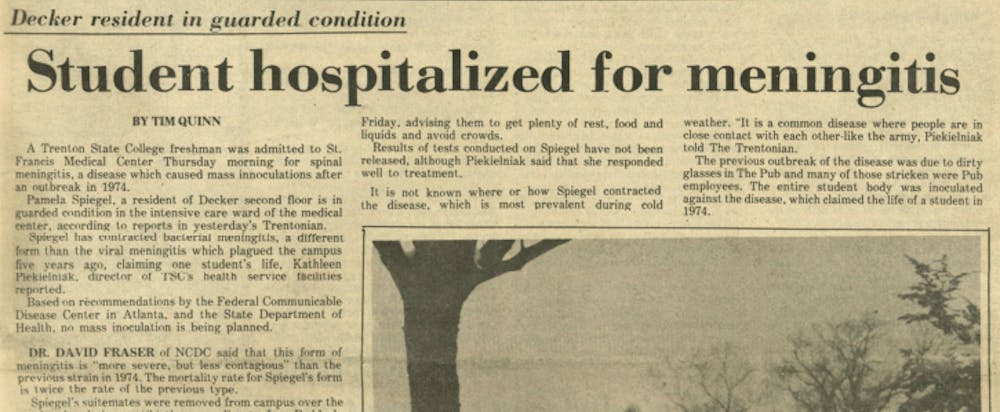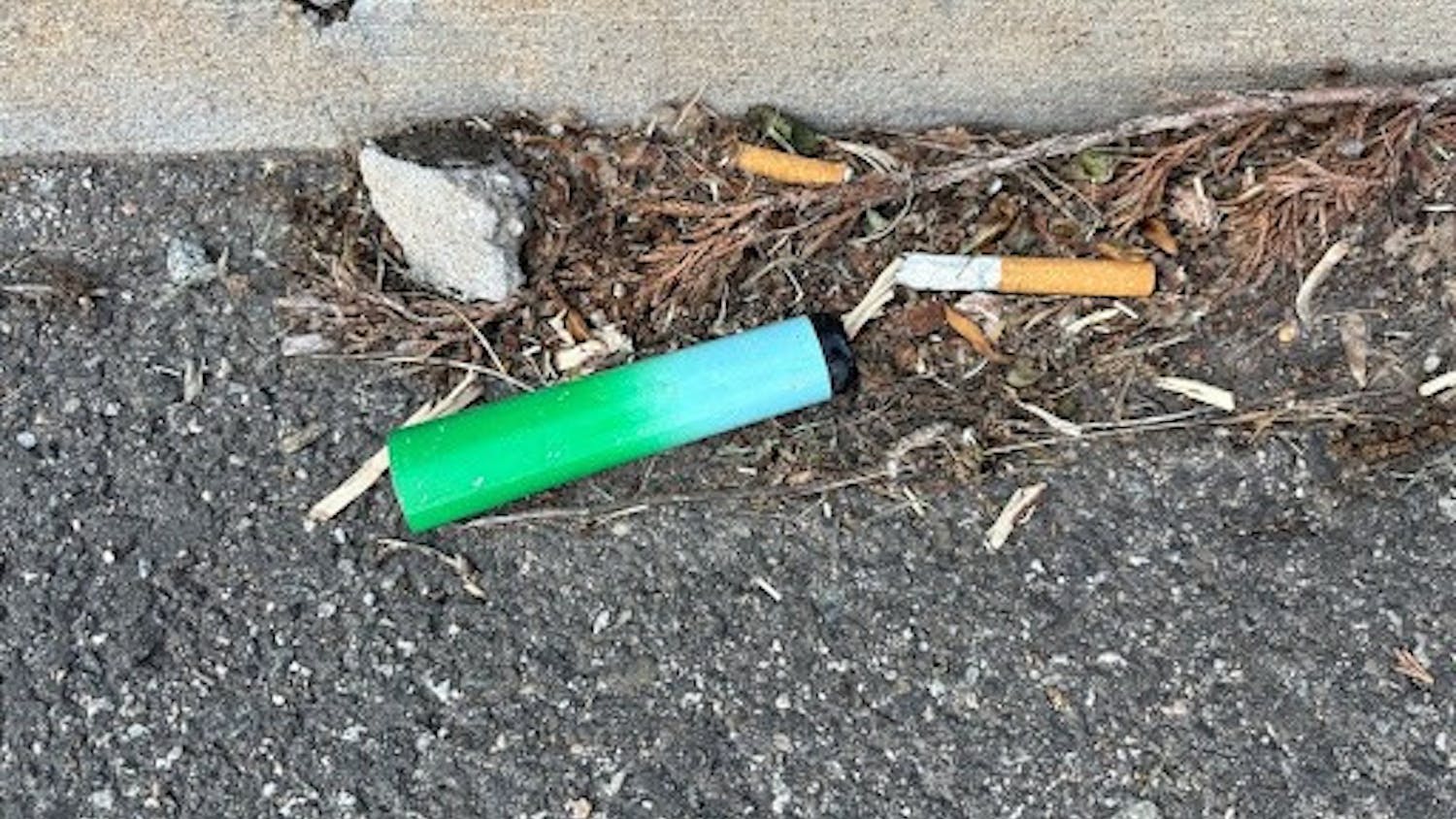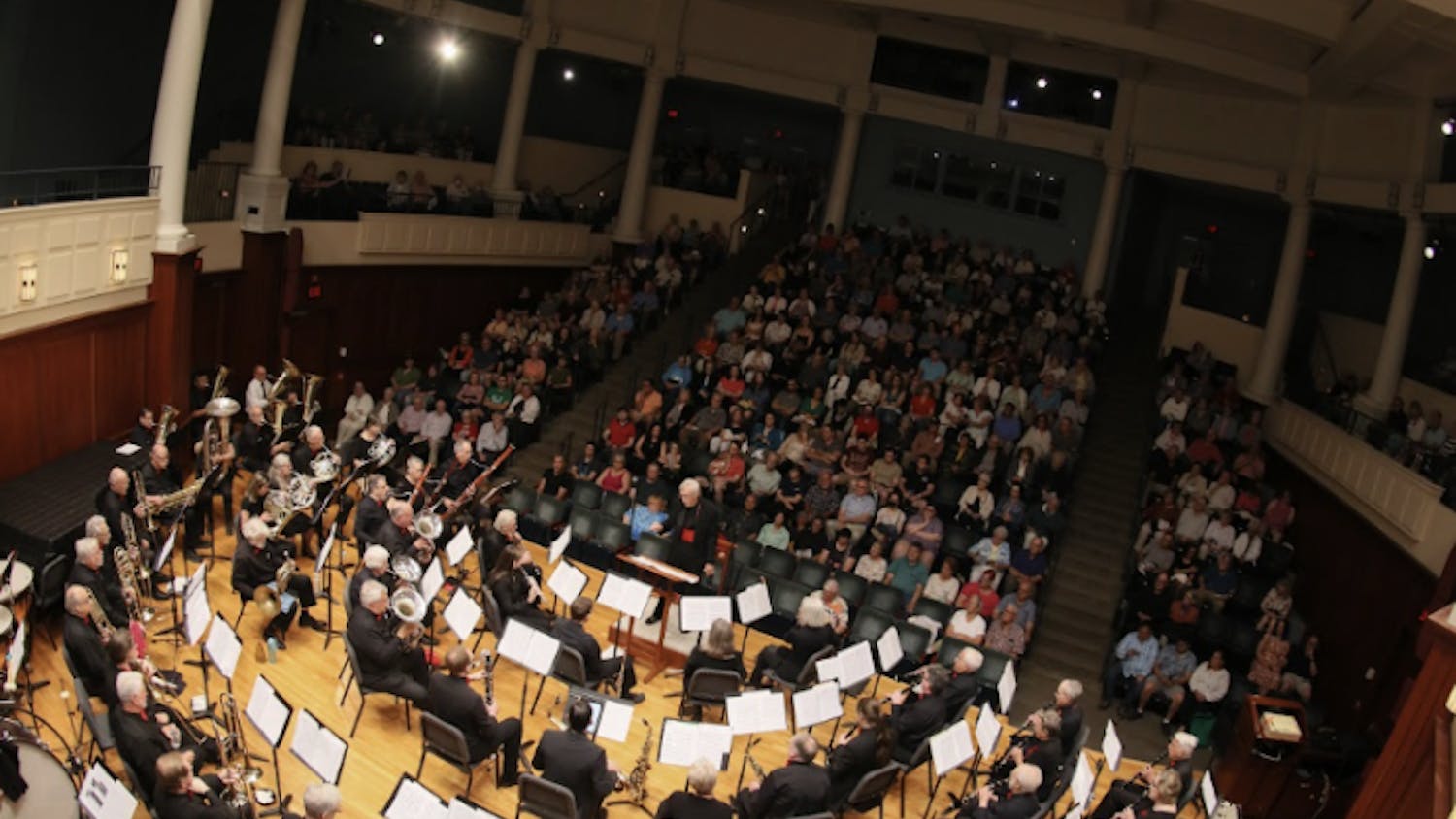Every week, Features Editor Lily Firth hits the archives and finds old Signals that relate to current College topics and top stories.
This year, the flu has been a serious public health concern, especially since it is so contagious. In some cases, even a flu shot cannot protect against infection from certain strains of the virus. The 2018 flu season has caused more hospitalizations in one single year than any in the last decade, according to The Washington Post. In 1979, there was a health scare at the College when a student became hospitalized after she contracted bacterial meningitis.

A Trenton State College freshman was admitted to St. Francis Medical Center Thursday morning for spinal meningitis, a disease which caused mass inoculations after an outbreak in 1974.
Pamela Spiegel, a resident of Decker second floor is in guarded condition in the intensive care ward of the medical center, according to reports in yesterday’s Trentonian.
Spiegel has contracted bacterial meningitis, a different form than the viral meningitis which plagued the campus five years ago, claiming one student’s life, Kathleen Piekielniak, director of TSC’s health service facilities reported.
Based on recommendations by the Federal Communicable Disease Center in Atlanta, and the State Department of Health, no mass inoculation is being planned.
Dr. David Fraser of NCDC said that this form of meningitis is “more severe, but less contagious” than the previous strain in 1974. The mortality rate for Spiegel’s form is twice the rate of the previous type.
Spiegel’s suitemates were removed from campus over the weekend and given antibiotics, according to Jere Paddack, dean of students. Paddack said that the chances of other students catching the disease was fairly remote, although it was possible in close-contact situations.
Residence hall students were notified by memo on Friday, advising them to get plenty of rest, food and liquids and avoid crowds.
Results of tests conducted on Spiegel have not been released, although Piekielniak said that she responded well to treatment.
It is not known where or how Spiegel contracted the disease, which is most prevalent during cold weather. “It is a common disease where people are in close contact with each other like the Army, Piekielniak told The Trentonian. The previous outbreak of the disease was due to dirty glasses in The Pub and many of those stricken were Pub employees. The entire student body was inoculated against the disease, which claimed the life of a student in 1974.







